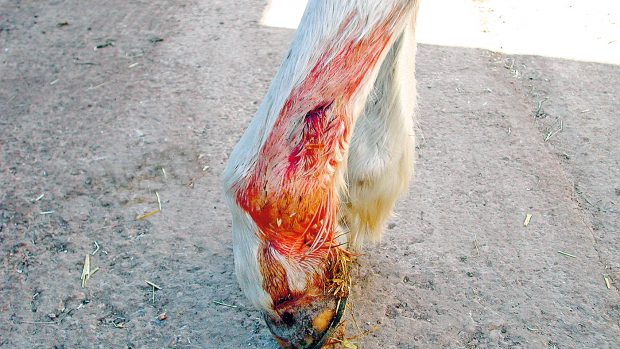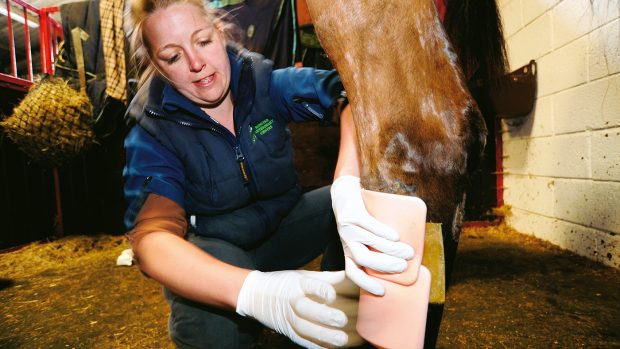First aid measures
- Stable the horse
- Feed good quality hay, but no grass
- Plenty of water to drink
- Don’t feed concentrates
- Probiotics may help in some cases
- As well as plain water, offer a separate water bucket containing electrolytes
- Check the horse’s temperature. If it is elevated contact your vet
- Look for oedema (accumulation of fluid) under the belly and on the lower limbs. This is a serious sign. If you notice it, you should talk to your vet as soon as possible
- Check your worming regime as parasites can cause diarrhoea
There is always a remote possibility that diarrhoea can spread to other horses or people. For this reason, be sensible with your own hygiene and keep the affected horse in, away from his fellow animals.
Cleaning the dock area and buttocks and applying petroleum jelly can help to reduce skin damage. It may also be necessary to bandage the tail to keep it clean, but never leave a bandage on for more than four hours at a time.



